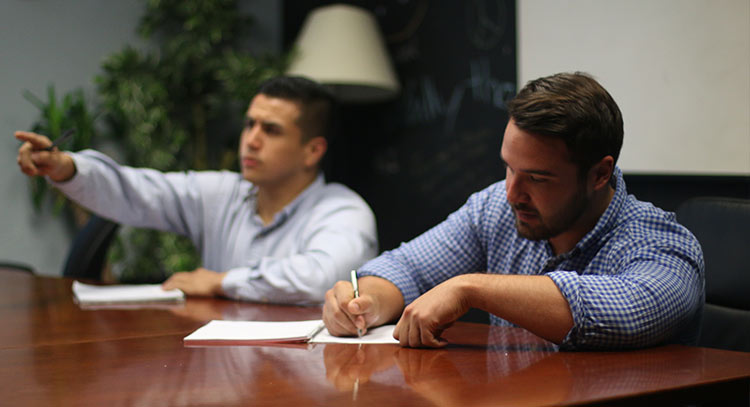Understanding how to prevent relapse and stay on the path to lasting sobriety is central to recovery from addiction. Relapse prevention education involves more than avoiding old habits, though—it’s about building the tools and confidence to face everyday stressors without resorting to substance use.
By combining addiction education with practical strategies for relapse prevention, individuals can set the stage for enduring recovery. Read on to learn more about effective addiction education and relapse prevention in California.
Addiction Education is a hybrid of addiction/psychology education and an interactive process group designed to provide a comprehensive understanding of the inner workings of addiction. It takes place daily in a classroom environment. Clients are able to identify their unhealthy behaviors and then replace them with functional behavior, which fosters interpersonal development and creates powerful neural connections. These neural connections in the brain elicit reduction in stress, anxiety and enable the client to experience intrinsic worth.
Clients are able to identify their unhealthy behaviors and then replace them with functional behavior, which fosters interpersonal development and creates powerful neural connections. These neural connections in the brain elicit reduction in stress, anxiety and enable the client to experience intrinsic worth. Throughout therapy, these changes are continually reinforced—therefore becoming automatic to support a sustainable recovery.
• Unhealthy Behaviors Identified
• Interpersonal Development
• Awareness of Involuntary Behaviors
• Healthy Behaviors Implemented



With over seven years of experience in counseling and lecturing on addiction, Rob has developed a great understanding of and appreciation for the importance of educating men in relation to the biological, psychological and social dynamics of addiction.
Relapse prevention training is a structured approach to help individuals in recovery stay sober long-term by identifying and managing triggers, emotions, and situations that may lead to substance use. Rather than attempting to avoid life’s challenges altogether, relapse prevention training shows people how to work through them with self-awareness and resilience.
Relapse doesn’t happen overnight. It often begins with subtle changes in thoughts, emotions, or behaviors, impacting up to 60% of those in recovery. This is why relapse prevention focuses on recognizing these early warning signs and developing practical tools to address them before they escalate. For example, a person might learn to identify when stress or negative emotions start building and implement strategies like relaxation techniques, reaching out for support, or practicing mindfulness to stay grounded.
The best relapse prevention training involves creating a personalized plan outlining specific steps individuals can take when they feel vulnerable, such as contacting a sponsor, attending a meeting, or engaging in physical activity to redirect their energy. Tailored strategies empower people to regain control in moments of uncertainty and stay committed to their recovery journey.
Addiction education programs are designed to provide individuals with the knowledge and tools they need to deal with the nuances of addiction and recovery. These programs often take place in a classroom-like setting and combine lectures, discussions, and interactive activities to make the learning process engaging and practical.
One of the primary goals of addiction education is to explain the science underpinning addiction. Participants learn how substances affect the brain and body, creating physical dependence and altering thought patterns. This understanding helps people see addiction as a chronic medical condition rather than a personal failure, reducing shame and building motivation for sustained recovery.
In addition to exploring the biology of addiction, this programs also draw attention to the psychological and social factors that contribute to substance use. Participants might discuss how stress, trauma, or unhealthy relationships play a role in their addictions. By gaining this awareness, they can identify patterns in their lives and initiate positive change.
Addiction education also focuses on skill-building. Participants practice effective communication, stress management, and goal-setting techniques. These skills support sobriety and improve overall well-being.
Education programs for addiction also promote a sense of community. Group discussions enable participants to share their experiences and learn from others on a similar path. This shared understanding can be remarkably validating and provide a foundation of support for the road ahead.
Relapse prevention offers numerous benefits that extend far beyond avoiding substance use. At its core, it empowers individuals to take charge of their recovery by equipping them with the tools, mindset, and support needed to stay sober and thrive. Here are some of the leading advantages:
Relapse prevention and addiction education are essential steps toward sustained recovery. Our relapse prevention program in California not only helps young men understand the root causes of their addictions but also equips them with the tools to overcome obstacles with confidence and resilience.
If you’re ready to take control of your recovery or help a loved one find their path to healing, call Tree House Recovery at (855) 202-2138 for immediate assistance.
With over seven years of experience in counseling and lecturing on addiction, Rob has developed a great understanding of and appreciation for the importance of educating men in relation to the biological, psychological and social dynamics of addiction.
Understanding how relapse happens is essential to preventing it. Learn why you relapse and how you can break the cycle.
Addiction Education is essential to achieving self awareness — an integral ingredient in long term, fulfilling recovery.